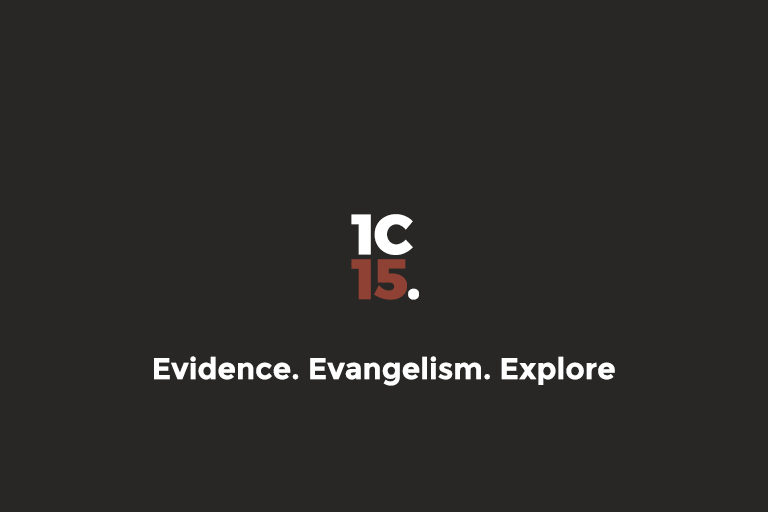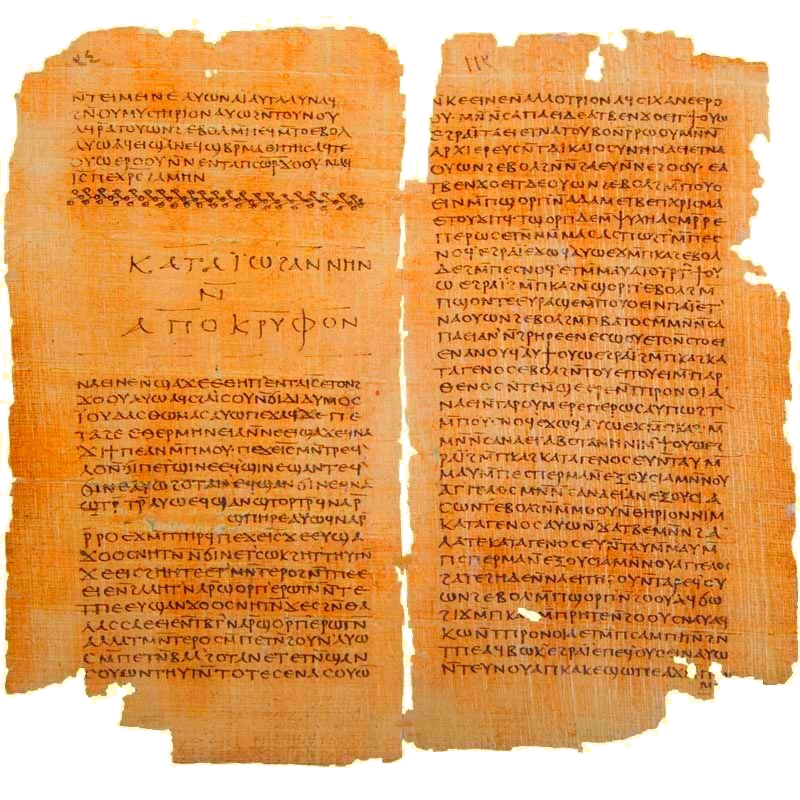Coptic Gospel of Thomas

The Gospel of Thomas (130-180AD) is a late non-canonical text that was first discovered in 1945 as part of a large collection of papyri excavated near Nag Hammadi in Egypt. It is a collection of sayings attributed to Jesus, written in the Coptic language, and attributed to a conversation recorded by Didymos Judas Thomas. We have 3 fragmentary second century texts, one 4th century text, it’s not filled with speculations about creation of the universe, avoids Jesus’ upbringing but is a collection of sayings. These Sayings are often partly from a Gospel and then contain a Gnostic twist. So This is a Gnostic (½) + Gospel (⅓) work as opposed to full blown Gnostic and is rather a mess as a result, the rest of the text can be seen to be too ambiguous.

Reasons for rejection
- It appears far too late in history to have been written by Thomas or any other reliable eyewitness of the life of Jesus. The oldest manuscript fragments of the text (found at Oxyrhynchus, Egypt) are dated from 130 to 250AD, and the vast majority of scholars agree that the Gospel of Thomas was written no earlier than the mid-2nd Century. These scholars cite several passages in the text appearing to harmonize verses from the canonical Gospels.
- This text requires a pre-existing set of Gospels to be in place to help build it’s structure of verses. It follows from the language of Luke rather than the considered earlier source of Mark
- Even Sceptic Bart Ehrman argues the Gospel of Thomas is a 2nd Century Gnostic text based on the lack of any reference to the coming Kingdom of God and return of Jesus.
- The earliest leaders of the Church also recognized the Gospel of Thomas was a late, inauthentic, heretical work.
- Hipploytus identified it as a fake and a heresy in “Refutation of All Heresies” (222-235AD)
- Origen referred to it in a similar way in a homily (written around 233AD)
- Eusebius resoundingly rejected it as an absurd, impious and heretical “fiction” in the third book of his “Church History” (written prior to 326AD)
- Cyril advised his followers to avoid the text as heretical in his “Catechesis” (347-348AD),
- Pope Gelasius included the Gospel of Thomas in his list of heretical books in the 5th century.
- The text was discovered with other Gnostic works and uses language ,like “Secret sayings” very privy to Gnostic teaching
- Contradicts core doctrine — Salvation found in these secret sayings and not Christ’s atonement (The atonement that is multiply attested early on Christian documents)
- Focus’ on words and tell us nothing about understanding the Jesus of history, about the geography, and culture of the time
- It is anti-Semitic which is bizarre considering Jesus was Jewish
Useful external attestation details
- Jesus as a real person in history
- Affirms Jesus as a wise teacher
- A good collection of his Gospel saying are also in Thomas in some form
- Affirms Jesus had many disciples
- Jesus was a popular travelling preacher in Samaria and Judea
- Confirms Jesus had brothers and Sisters
- Mentions John the Baptist by name
http://gnosis.org/naghamm/gthlamb.html
Example Texts
Parable 64 sounds initially like Jesus’ parable but then it ends Gnostically
(64) Jesus said, “A man had received visitors. And when he had prepared the dinner, he sent his servant to invite the guests.
He went to the first one and said to him, ‘My master invites you.’ He said, ‘I have claims against some merchants. They are coming to me this evening. I must go and give them my orders. I ask to be excused from the dinner.’
He went to another and said to him, ‘My master has invited you.’ He said to him, ‘I have just bought a house and am required for the day. I shall not have any spare time.’
He went to another and said to him, ‘My master invites you.’ He said to him, ‘My friend is going to get married, and I am to prepare the banquet. I shall not be able to come. I ask to be excused from the dinner.’
He went to another and said to him, ‘My master invites you.’ He said to him, ‘I have just bought a farm, and I am on my way to collect the rent. I shall not be able to come. I ask to be excused.’
The servant returned and said to his master, ‘Those whom you invited to the dinner have asked to be excused.’ The master said to his servant, ‘Go outside to the streets and bring back those whom you happen to meet, so that they may dine.’ Businessmen and merchants will not enter the places of my father.”
Gnostic texts are often anti-semetic
(53) “His disciples said to him, “Is circumcision beneficial or not?”
He said to them, “If it were beneficial, their father would beget them already circumcised from their mother. Rather, the true circumcision in spirit has become completely profitable.”
Some gnostic texts have been used in support for feminism because of the radical equality, but equality in the sense of the sexless person
(114) Simon Peter said to him, “Let Mary leave us, for women are not worthy of life.”
Jesus said, “I myself shall lead her in order to make her male, so that she too may become a living spirit resembling you males. For every woman who will make herself male will enter the kingdom of heaven.”
0 Comments